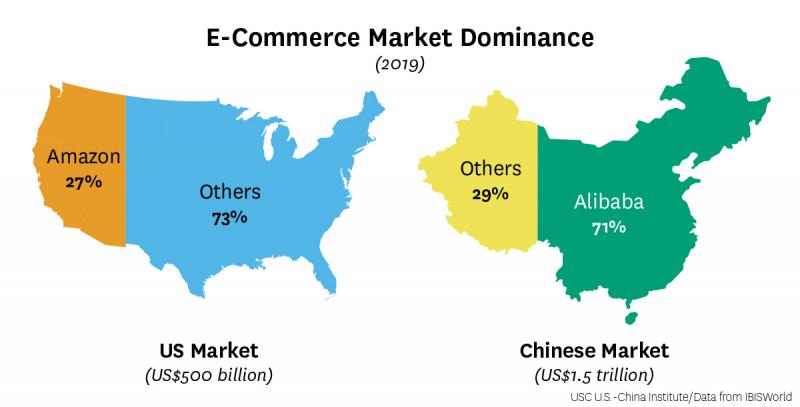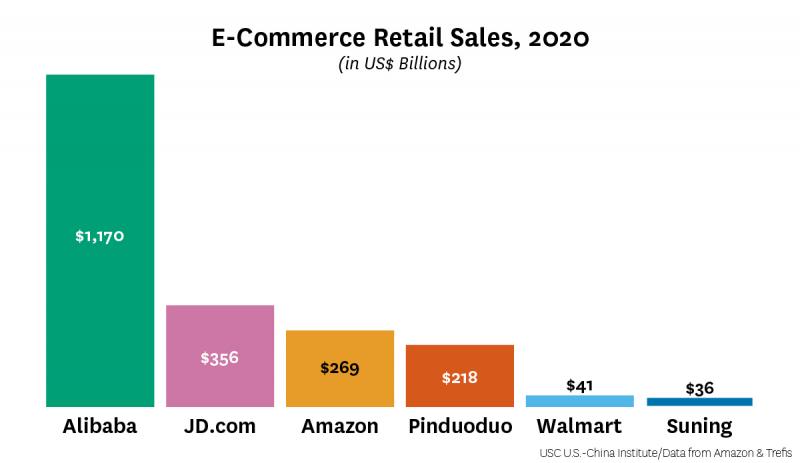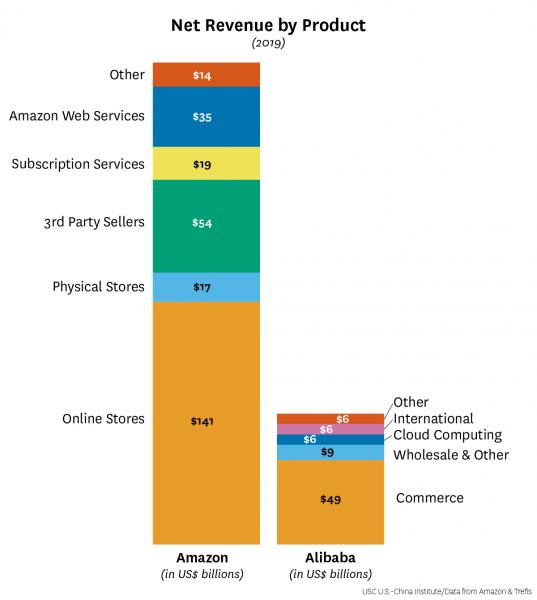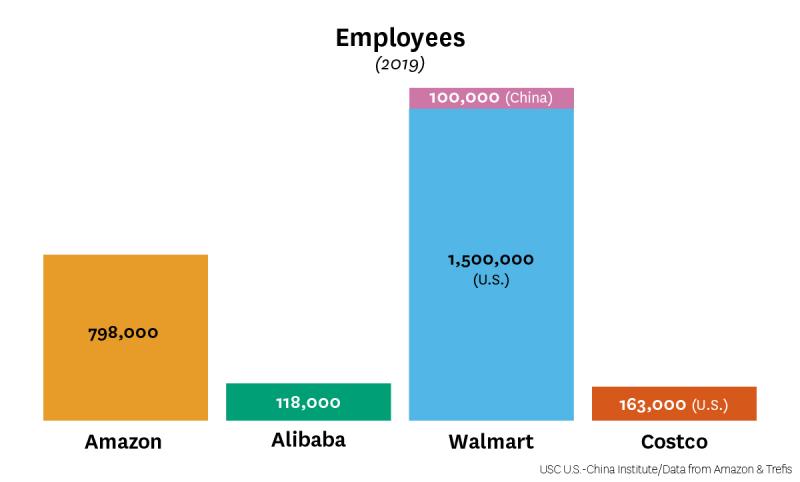Subscribe to our weekly newsletter to get them delivered straight to your inbox!
If you’ve been working from home over the last few months, you probably noticed that you’re going through hand soap, coffee, trash bags, and toilet paper a lot faster than before. Many are now buying essentials online. In China, for instance, 64% of consumers switched to buying hygiene products online compared to 27% of Americans. With more and more of our everyday shopping taking place digitally, we looked into who the big players are in the U.S. and China through four charts.

In the U.S., when you think of online shopping, the first company that comes to mind is Amazon. But while their brown boxes seem ubiquitous here, they have less than half of the market dominance than Alibaba does in China.

China leads every country in the world in e-commerce, with an estimated 41% of all retail sales online compared to just 15% in the U.S., driving up the total dollar sales reflected here.

Both companies are profitable, but Alibaba makes most of its money via its ecommerce platform. Alibaba’s profits (77% in the last quarter) mainly come from its cloud hosting business.

Because its platforms are mainly business to business or business to consumer, Alibaba employs just 15% of the workers of its U.S. market counterpart. Amazon warehouses products, handles a lot of fulfillment and is building a delivery network. Walmart, which is a distant number two in U.S. ecommerce, has nearly 5,000 stores in the U.S. It is the largest private employer in the country.




